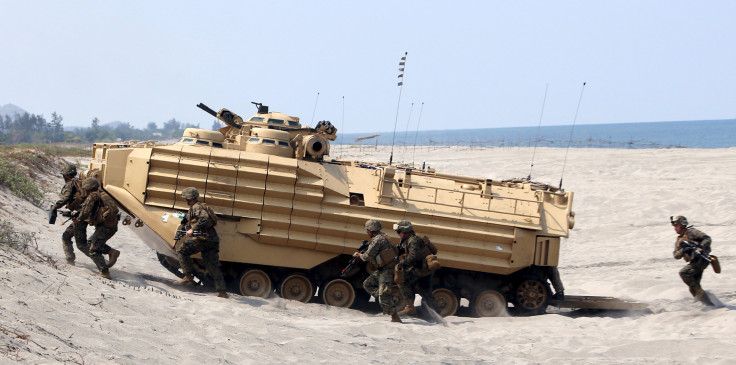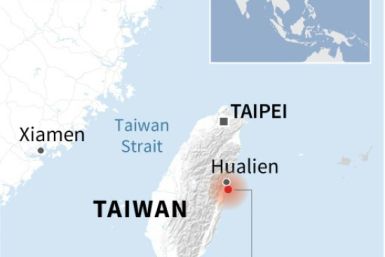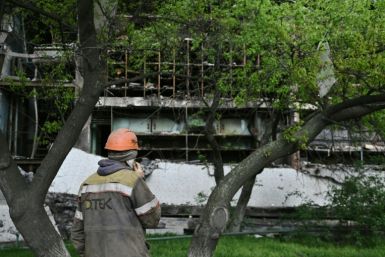US Dumps China Offer, Says It Won’t Use Facilities On South China Sea Disputed Islands

Thanks but no thanks, the United States told China as it refused the latter’s offer to use the facilities the Asian country is building on the highly disputed islands on the South China Sea. The infrastructure, according to China, are civilian facilities meant for search and rescue as well as weather forecasting.
China, based on recent satellite images, has been found to have made rapid progress in building various facilities, including an airstrip, over the artificial islands in disputed regions of the South China Sea. According to the Wall Street Journal, citing a report posted on the Chinese Defence Ministry website over the weekend, U.S. Adm. Jonathan Greenert was informed by his Chinese counterpart Adm. Wu Shengli in a video conference that the facilities wouldn’t affect freedom of navigation or overflight in the area.
“Instead, it will improve the ability in these seas of public services like weather forecasting and maritime search and rescue, fulfilling international obligations to maintain the security of international seas,” Wu said. “(We) welcome international organizations, the United States and relevant countries to use these facilities in the future when conditions are right, to have cooperation on humanitarian search and rescue and disaster relief,” he added.
But Jeff Rathke, State Department acting deputy spokesman, said if China really wanted to reduce tensions, it should just stop its land reclamation activities. “Building facilities on reclaimed land in disputed areas will not contribute to peace and stability in the region,” Rathke told reporters.
Each building activity on each island has been given a different reason by China. Greenert told his counterpart it would be best for China to explain to the other countries in the region the reason for such build-up.
Ni Lexiong, a Shanghai-based military affairs commentator, told the South China Morning Post that when China offered to open such facilities for civilian use in the future, it was actually “a more moderate and diplomatic way of making our claim."
To report problems or to leave feedback about this article, email: e.misa@ibtimes.com.au.






